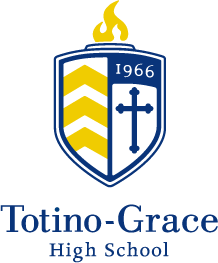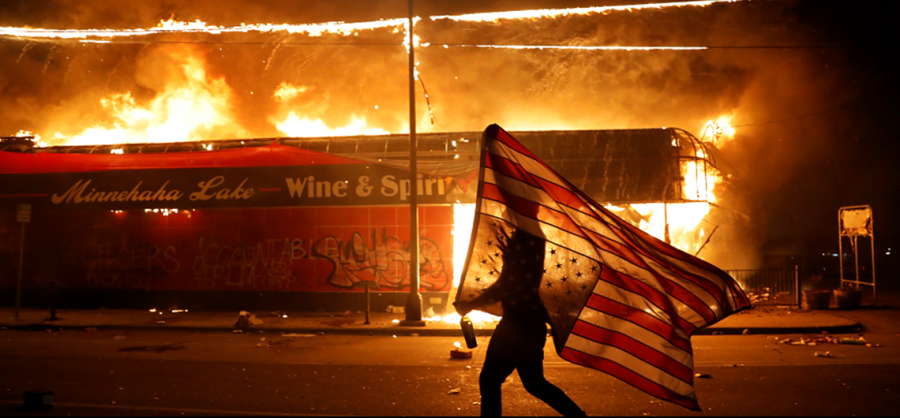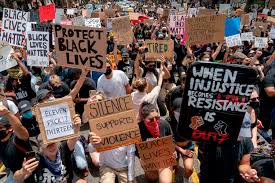Education Versus Racism: The Fight for a Better Future
Amid the prevalent racial injustices in the United States, education on racism is vital.
October 27, 2020
“Diversify Our Narrative”, a campaign integrating anti-racist texts and dialogue in schools, has swept across schools in the United States, including Totino-Grace High School. Schools are taking the necessary step to help students grow and understand the racial injustices that surround them.
The racism, racial injustices, and white supremacy that has engulfed the United States for far too long are finally coming to the forefront of society, and equality for the black community is being fought for. Unfortunately, the last straw that sent a new wave of need for black equality was the death of George Floyd, a 46-year-old African American man that was killed by a white police officer in Minneapolis, Minnesota. Protests sweep across the nation, and movements like #SayTheirNames and the Black Lives Matter, though initiated multiple years ago, received attention to change and repair our broken society.
To change the future of our nation, in regards to racial equality, the “Diversify Our Narrative” campaign is being explored and integrated into school curriculums across the country to educate and promote dialogue with the youth about racism and diverse cultures. At Totino-Grace High School, this campaign has been discussed for those same reasons.
Cheri Broadhead, principal of Totino-Grace High School, believes that educating students on the racism and racial injustices seen in the United States is “our job as a school”. McKenzie Nguyen, an initiator of this campaign at Totino-Grace, says, “Our world is so diverse, especially in America – there are so many voices that go unheard and so many stories that go unnoticed”. She believes that growth and understanding of racial equality are essential, especially for the youth, to continue to promote and fight for racial equality in the future. Broadhead believes that “literature should be a mirror for students of color so that they see themselves represented in the stories we read”, and Nguyen believes “…it’ll help students understand and be able to read, learn about, and educate themselves on issues that their peers, whether they know it or not, go through”.
Educating the youth on difficult topics, like racism and racial injustices, is a relevant topic within schools. Mary Anton, principal at Bowman Elementary School in Lexington, Massachusetts, believes that “teaching children about race and bias is an important part of dismantling racism through education”. Giving students a foundation on the racial injustices in the United States is essential in fighting for racial equality in our society.
Ultimately, education and promoting dialogue on racism in schools is about achieving “not just greater cultural competency, but a new level of knowledge and understanding called cultural proficiency”, meaning that students should be learning how to obtain “the knowledge, skills, attitudes, and beliefs that enable people to work well with, respond effectively to and be supportive of people in cross-cultural settings” (BlackPast, AAFP).
The “Diversify Our Narrative” campaign shares the same views that incorporating education and dialogue about race, racism, and anti-racism into school curriculums is essential for the betterment of our country. Started by two Stanford students in June 2020, the mission of the campaign is “to fight to be anti-racist and encourage a productive dialogue on race and identity among our student bodies through the inclusion of racially diverse, anti-racist texts in United States’ schools” (“Diversify Our Narrative”).
“Schools have not only the capacity, but also the obligation to educate its students about race, racism, and anti-racism in America through the right books and curriculum,” the “Diversify Our Narrative” campaign said. “It is critical that our school systems capitalize on the potential of literature to educate America’s youth on the very real, systematic injustices that exist in our society – and more importantly, how they can help remedy them by being actively anti-racist”. By doing this, students have the opportunity to learn about being anti-racist, allowing them to grow their views on racial equality. Educating the youth about the systematic injustices in the United States promotes future change and encourages the continuation of the fight for racial equality.
The incorporation of anti-racist books and dialogue within school curriculums allows students to be educated on the current issues in the United States and how to respectfully address and promote change in society. Growing younger generations’ understandings and perspectives on the racial injustices in our country helps promote a future where racial equality is a reality.






